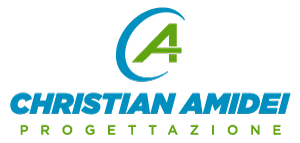The Windward Fund’s Water Funder Initiative seeks to advance sustainable water management in the American West by catalyzing philanthropy to confront the toughest problems at hand, with an eye toward building a field capable of delivering systemic change. This grant supports the activities of the Water Funder Initiative.
Open Educational Resources
Perhaps the best an aspect of my responsibilities is finding a good pace various individuals who are profoundly dedicated to supporting teachers and understudies. Now and again it’s grantees who have been dealing with Open Educational Resources (OER) activities for quite a while, and I love gaining from their experiences about how their work has advanced throughout the years. As a major aspect of the invigorate of Hewlett’s OER methodology this year, I additionally have attempted to be increasingly purposeful about tuning in to individuals who are new to open instruction, or who are interested yet doubtful about the capability of OER to address the most squeezing difficulties in training. This encourages me to find out about ways we can improve and fortify how we bolster gatherings to propel open training.
All through the entirety of my discussions this year, one predictable message is that the objectives of powerful instructing and learning should drive OER selection.
While improving understudy access to materials has consistently been a spark for our work, we haven’t constantly worked superbly of preparing instructors or understudies to utilize OER in manners that boost learning. At last, we are meaning to work with networks and instructors to guarantee that each student, regardless of where they live, what they resemble, or how a lot of cash they have, has the office, assets and backing to prevail in the 21st century society and economy. OER is one approach to ensure that entrance to instructional materials are not a boundary to learning, and open instructive practices can exemplify the social and academic backings that reflect responsive guidance. At exactly that point will students consider themselves to be skilled and fit issue solvers.




The social and academic backings
My conversations with associates in the field likewise have uncovered that we are as yet far away from understanding this objective. Despite the fact that we have bolstered the improvement of OER substance and stages, get to alone isn’t sufficient. Impartial and powerful utilization of OER requires an interest in individuals just as substance. Honestly, it isn’t sufficient to move culture and practice among teachers we have to create proof based methodologies that illuminate how and under what conditions open instruction assets and practices really bring about various and better results for understudies. Furthermore, we need straightforwardness by they way we approach this work, for example by ensuring that any specialized foundation for OER that gives “learning examination” bolsters cooperative, information driven instructing and secures understudy information.
Information driven instructing
- While we are arriving at some early decisions about difficulties in the field, our assignment is to make sense of how the Hewlett Foundation is extraordinarily situated to address these difficulties.
- In an ongoing discussion with our own instruction group, my associates communicated the most vitality around these inquiries:
- How might we center our grantmaking with the goal that our work all the more deliberately empowers teachers to utilize open instruction assets and practices to upgrade understudy learning?
How might we bring issues to light about open instruction among teachers who don’t think about it or don’t think it is powerful with the goal that they comprehend its capability to address their issues and the requirements of their understudies?
Some Italic
How might we bolster areas and advanced education frameworks to utilize OER to methodicallly improve instructing and learning?
I expect these inquiries will advance in the months to come, yet they have been valuable for managing early considering objectives and results for the new system and they signal a requirement for the new technique to keep teachers and their needs at the focal point of our work. For instance, in K-12 instruction, we may plan to see more regions embrace and execute OER with adjusted proficient improvement underpins for instructors. In postsecondary training in the US and universally, progress would incorporate expanded institutional help for comprehensive and inventive study hall practice with OER (e.g., through educating and learning focuses and libraries).

